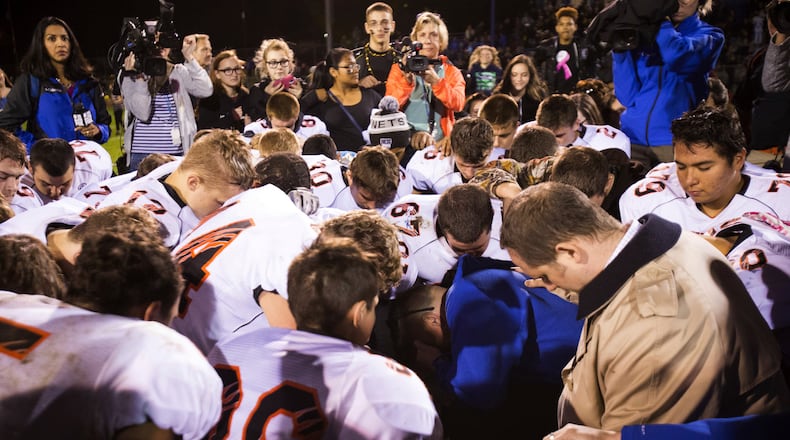Three years ago, though, in Kennedy v. Bremerton, the Supreme Court explicitly rejected the so-called endorsement test in upholding the right of a football coach in a public high school in Washington to pray silently on the field after games. While conceding that Kennedy involved a coach, rather than students, it is worth noting that the Justices explained that the Establishment Clause does not “require the government to single out private religious speech for special disfavor.” The Court added that it “long ago abandoned” the endorsement test it partially relied on in Santa Fe.
Following Kennedy, because the Ohio High School Athletic Association had not addressed this issue, Lieutenant Governor John Husted encouraged local boards to update their policies clarifying the rights of school employees to pray. However, the OHSAA apparently remains silent on prayer before, or after, games.
There can be no doubt that prayer occupies a place of great importance for many Americans. Yet, growing numbers of individuals identify as “none” with regard to religious affiliation in recent years. These “nones” are likely to view prayer before games, let alone at other public events such as graduations, as an infringement on their First Amendment right that the state “shall make no law respecting an establishment of religion.”
At this point I must make it clear that I strongly believe in the importance and value of prayer. Even so, I urge caution because requiring players to join in prayer, whether on the field, or in locker rooms, before or after games, likely infringes on their rights. Additionally, how many student-athletes would refuse to pray if they feared they would not get to play for ignoring the coach’s directions? Also, what about the rights of audiences who, as “captive audiences” do not wish to pray?
Instead of an explicit faith-based prayer over PA systems, speakers can ask for a moment of silence or offer brief reflections about the value of clean, hard competition with the hope that all players remain injury free. As speakers deliver words of encouragement, players, coaches, and fans would be free to offer their own prayers silently. Having a moment of silence or nondenominational words of encouragement should help to avoid hard feelings and potentially expensive, divisive litigation while leaving time for quiet prayer. After all, prayer, whether at football games or other events, should be designed to bring people together rather than cause division.
About the Author

